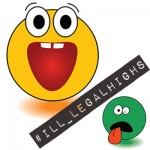Legal Highs (Psychoactive Substances) are substances used like drugs, They offer the same high s as cocaine and cannabis.
s as cocaine and cannabis.
There were 99 deaths from legal highs in England, Wales and Scotland in 2012. But in 2013 that number rose to 173. A United Nations report published in 2013 showed 670,000 young people in the UK (aged 16-24) having taken a legal high: this makes the UK the highest consumers of legal highs in Europe.
Although these drugs were marketed as legal substances, they are not safe or approved for people to use. Legal Highs can carry serious health risks. The chemicals they contain have in most cases never been used in drugs for human consumption before, so haven’t been tested to show that they are safe. Users can never be certain what they are taking and what the effects might be.
Legal Highs can carry serious health risks. The chemicals they contain have in most cases never been used in drugs for human consumption before, so haven’t been tested to show that they are safe. Users can never be certain what they are taking and what the effects might be.
As with alcohol and other recreational drugs, users can suffer from reduced inhibitions, drowsiness, excited or paranoid states, coma, seizures and, in a few cases, death.
The chemical ingredients in a branded product can be changed without the user knowing, therefore the risks are unpredictable. For example a glass of wine would contain the same alcohol content allowing a person taking a social drink to understand the effects. This is not the same for legal highs resulting in a different reaction to the drug. Even drugs that look similar or have similar names may be of varying strengths and have different effects.
Legal Highs are usually sold on internet sites as plant food, bath salts or herbal remedies. They may be labelled not for human consumption. Legal highs used alongside alcohol pose even greater risks to health and should be avoided.
The ‘legal high’ industry moves fast – around one new drug is produced every week. This process has been going on for about 100 years – the difference now is that the internet has created a global drug marketplace.
These drugs are produced well outside of the standard rules and regulations – so there are massive variations in quality. Most medications are subjected to long studies and ‘safety testing’. This is not the case with ‘legal highs’, so nobody knows the short-term or long-term risks.
Changes to the law around substances formerly known as ‘legal highs’ have come into force across the UK.
The Psychoactive Substances Act provides a blanket ban on the production, supply and importation of these types of drugs giving officers and Trading Standards new powers to prevent harm.
Anyone caught breaking the new law could face up to seven years in prison.
